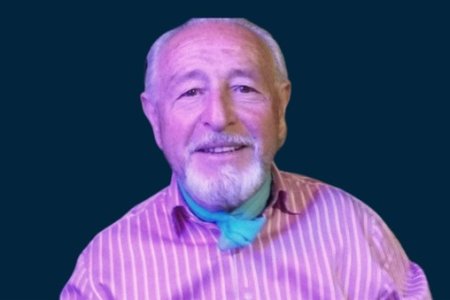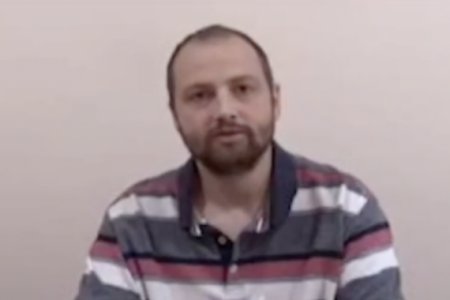![Mariano Garcia Calatayud [Mario] An earlier photo from his Facebook page](https://khpg.org/files/img/1608824611.jpg)
It is three and a half years since the Russian invaders abducted Mariano Garcia Calatayud [Mario] from occupied Kherson and two years since Russia claimed that the then 75-year-old Spanish volunteer had ‘left’ occupied Crimea. Russia is hiding the whereabouts of a huge number of civilians, abducted from occupied territory, but its secrecy in this case is especially worrying given Mario’s age and the fact that Russia had earlier acknowledged that it was holding him prisoner in occupied Crimea. Mario is known to have been subjected to torture in Russian captivity and to have suffered a heart attack, and it is, unfortunately, possible that Russia is trying to conceal the Spanish national’s death in the appalling conditions of a Russian/ Russian-controlled prison.
Mario is from Valencia and has sons and grandchildren back in Spain. He was 64 and working in local government when Russia invaded Crimea and began its military aggression in Donbas. He took early retirement and came to Ukraine, eventually settling in Kherson and organizing humanitarian aid, collected in Spain and Ukraine, to the frontline. Mario and his (common-law) wife Tetiana joined all of the pro-Ukrainian demonstrations in the centre of Kherson after Russia’s invasion in February 2022, with Mario also giving interviews to Spanish media. In those interviews, as well as in his day-to-day life, he openly expressed his pro-Ukrainian views and rejection of Russia’s war of aggression and occupation of Kherson.
All of this would have angered the Russian invaders who had begun abducting civilians from the first days of the full-scale invasion. They must have understood that their seizure of a Spanish national, not to mention a person in his seventies would elicit protest far beyond Ukraine.
This did not deter them from abducting Mario nor did it prompt them to release him. Instead, it would seem, they resorted to devious methods aimed at blurring the situation. The Media Initiative for Human Rights [MIHR] reported earlier, for example, that a local collaborator pretended to be a Spanish friend of Marios, and falsely asserted that Mario had been released.
Russian pro-war bloggers also added Mario’s name to a Russian foreign ministry-supported database of foreign nationals fighting for Ukraine, claiming that he had fought in the Territorial Defence. Mario’s chosen home had been invaded and there would most certainly have been nothing to justify Russia’s treatment of Mario, had it been the case. It was not. Russia’s invasion of Kherson was so swift that armed resistance was scarcely possible. Mario’s protest was unarmed and peaceful, and he was, undoubtedly, illegally abducted as a civilian.
Mario was seized by the Russians on 19 March 2022, outside the apartment block where he was living with Tetiana. She was luckier than many relatives of Russian civilian hostages in that she learned very quickly, from Oleh Baturin, a Kakhovka journalist, held by the Russians for a week and then released, that Mario had been held in the same place as him. Baturin recalled hearing Spanish spoken, and that Mario had abused the invaders and called out “Glory to Ukraine!”
It is also typical that the torture, with the use of electric currents, passed through the body, which Mario was subjected to, appears to have been over his Spanish bank card. This had, in fact, been blocked by the bank after the full-scale invasion, but the Russians clearly hoped to get money out of it.
He was briefly held at one of the many torture prisons that the Russians set up in occupied Kherson and then taken to occupied Crimea. It is not clear when this happened, however by September 2022, a freed civilian confirmed that he had been held in a cell with the Spanish volunteer in Simferopol.
He was held both in the original SIZO, or remand prison, and then in SIZO No. 2, which was opened in occupied Crimea shortly after its full-scale invasion and which is believed to be under the control of Russia’s FSB. He was held for some time with Oleksandr Babych, the Mayor of Hola Prystan, whose imprisonment the Russians have also never formally acknowledged
It was only in April 2023 that Russia admitted holding Mario prisoner. Such forced honesty was, however, fleeting and a few months later, Tetiana learned that Mario was no longer at the SIZO when her parcel for him was handed back to her. Then in December 2023, the Russian Black Sea fleet’s military prosecutor claimed to lawyer Anatoliy Fursov that Mario had been ‘transferred’ to Kherson oblast. There has been no information from Russia or its occupation regimes since then, and there do not appear to have been any further confirmations from prisoners who have been released that they saw, or shared a cell, with Mario.
Deutsche Welle’s Ukrainian Service has just published a report which rather bafflingly says that Mario was “arrested” by the Russian invaders in March 2022. The journalists spoke with Nikasio Ramos, a lawyer who specializes in looking for those who have disappeared without trace. Unfortunately, he believes that, if Mario was still alive, the Russians would not be concealing his whereabouts. In fact, that could probably be disputed. Russia has not, to this day, admitted to holding several Ukrainian public officials, teachers, or others, yet, one way or another, there have at least been indications that somebody saw or spoke with them. Here there has been only chilling silence.



